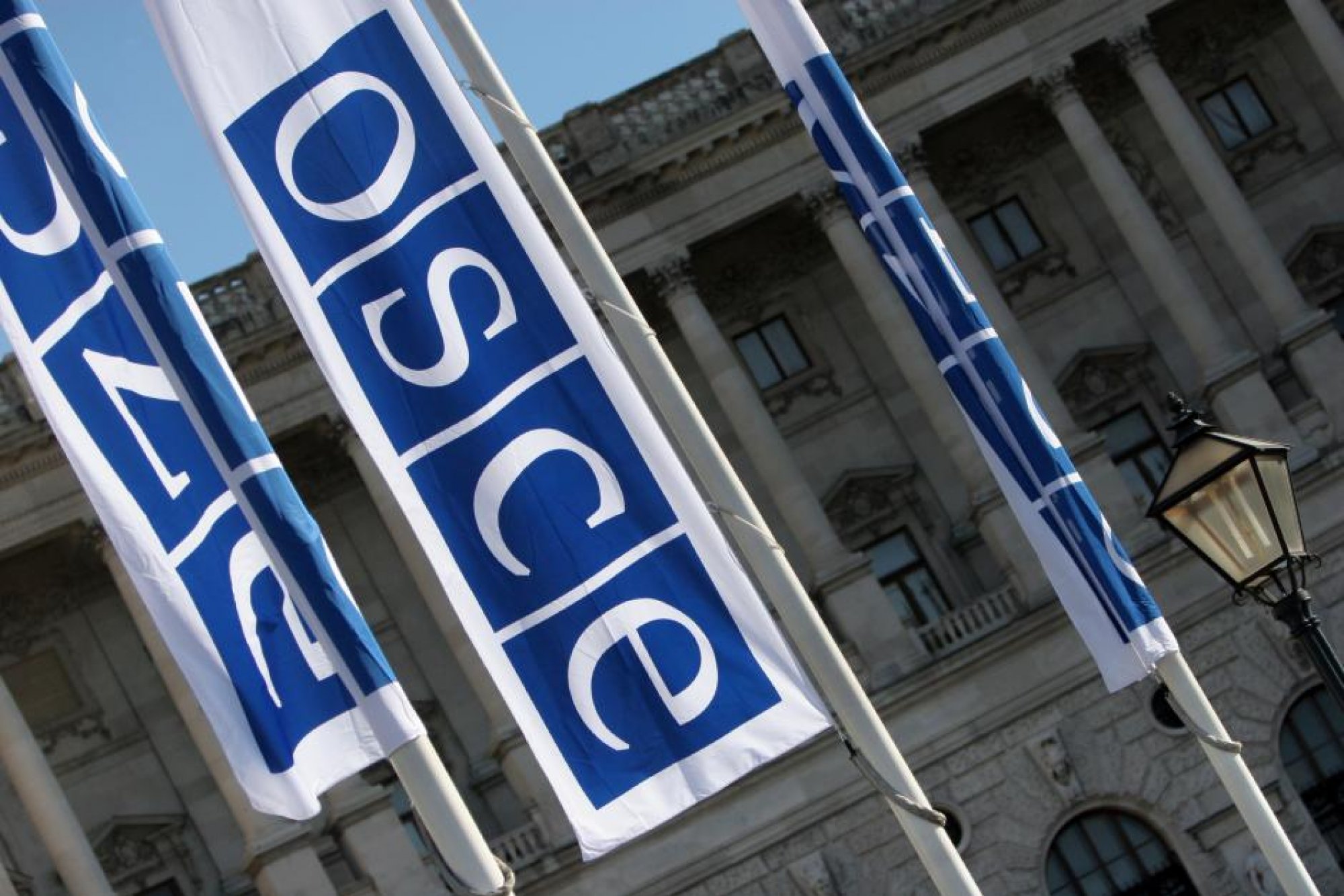OSCE/Mikhail Evstafiev

OSCE faces renewed leadership vacuum
The 57 OSCE member states have failed to reach consensus on a new senior leadership, the Maltese OSCE Chairpersonship announced on Tuesday.
The lack of consensus leaves the OSCE rudderless, with the four most important senior posts remaining vacant until OSCE representatives agree on a new leadership slate.
“After extensive deliberations, the Maltese Chairpersonship of the @OSCE regrets that the 57 participating States have not yet been able to reach consensus on appointing a new OSCE leadership,” the Maltese OSCE Chairpersonship said in a post on X on Tuesday.
“We remind all partners of their indivisible responsibility for the Organization & the shared commitment of the 2023 Skopje Ministerial Council to designate new Heads of Institutions in a timely manner,” the statement continued.
The mandates of OSCE Secretary General Helga Schmid, OSCE High Commissioner on National Minorities Kairat Abdrakhmanov, OSCE Representative on Freedom of the Media Teresa Ribeiro and Director of the OSCE Office for Democratic Institutions and Human Rights Matteo Mecacci expired on Tuesday at midnight.
“On my last day as @OSCE Secretary General, I wish to thank once more all our exceptional #staff for their hard work and dedication. In this difficult world, the OSCE maintains the experience, expertise and mandate to make the world a better and safer place for all,” Helga Schmid said in a post on X.
At the OSCE Ministerial Council meeting in Skopje in December 2023, Russia agreed to extend the mandates of the current incumbents for only nine months instead of the customary three-year term, necessitating a search for new OSCE leadership.
As with all OSCE decisions, the appointments can only be made after consensus has been reached among all 57 participating states. Any member state can unilaterally block an agreement if it wishes to exert pressure within the Organization, whether in order to press for concessions elsewhere or attempt to push through its own candidate.
OSCE diplomats, who spoke on the condition of anonymity to discuss the internal deliberations, say that Malta tabled four names out of 13 nominated candidates. These four candidates had gathered the most support in previous consultations, according to OSCE diplomats.
The Maltese proposal included Igli Hasani (Albania) for the post of OSCE Secretary General, Christophe Kamp (Netherlands) for the post of Director of the OSCE Office for Democratic Institutions and Human Rights, Ketevan Tsikhelashvili (Georgia) for the post of OSCE High Commissioner on National Minorities, and Jan Braathu (Norway) for the post of OSCE Representative on Freedom of the Media, OSCE diplomats say.
While the Maltese proposal did receive broad support from a majority of OSCE member states, OSCE diplomats say that one of the main stumbling blocks in the negotiations has to do with both Türkiye and Greece insisting on having their own candidates properly considered.
Their joint nomination includes Feridun Sinirlioğlu, a former diplomat and foreign minister who served in that position as part of Türkiye’s interim government in 2015, and Maria Telalian, a Legal Adviser at the Greek Ministry of Foreign Affairs and Head of the Legal Department.
The current Chairpersonship led the negotiations to select a new leadership on a tight schedule. On June 3, it announced the 13 candidates that had been officially nominated by their governments for the OSCE’s four senior leadership posts.
An intense deliberation process followed, but the necessary consensus did not emerge, highlighting once more the complexity of brokering consensus among states with so many competing interests and the associated risks of prolonged deadlock.
The Chair has followed prior practice of engaging a group of trusted ambassadors, usually some of the longest-serving, to assist in the negotiation process. The other members of the OSCE Troika (presently North Macedonia and Finland), are also usually involved in the negotiations.
Negotiations on a new senior leadership will continue under Malta’s leadership until agreement is found, but it is unclear at this stage how long the deliberations will take. One deadline will certainly be the OSCE Ministerial Council meeting, scheduled to take place in Valetta in December.
Discussions on appointments in the OSCE are generally kept out of the public domain and are held behind closed doors.
To ensure the OSCE’s operational integrity, Malta’s Foreign Minister Ian Borg has “authorized Ms Catherine Fearon, Director of the OSCE Conflict Prevention Center and Deputy Head of the OSCE Secretariat, to temporarily assume the essential functions of the OSCE Secretary General as a necessary and remedial response,” the Maltese OSCE Chairpersonship said in a statement on Tuesday.
“This arrangement, effective from 4 September 2024, will remain in place until a new Secretary General is appointed, thereby ensuring the uninterrupted management of the OSCE’s human, financial, and material resources in the implementation of its mandated activities,” the statement continued.
Borg also appointed officers in charge to “maintain the operational continuity” of the office of the OSCE High Commissioner on National Minorities, the office of the OSCE Representative on Freedom of the Media and of the OSCE Office for Democratic Institutions and Human Rights.
Concretely, the OSCE’s work in the areas of minority rights and media freedom will be most severely affected by the leadership vacuum. The portfolios and mandates of the OSCE High Commissioner on National Minorities and of the OSCE Representative on Freedom of the Media are intimately associated with their respective heads. Both offices will be de-facto disabled until new heads are found.
The leadership vacuum hits the OSCE at a time when the Organization is already under strain. There has been no approved organizational budget since 2021, and all OSCE activities are conducted against the backdrop of the ongoing Russian war against Ukraine.
The OSCE last faced a leadership crisis in 2020, when infighting left the four senior posts vacant for a five-month period between July and December.



Comments
* Your email address will not be published